#using that argument in the 1530s...
Note
If only Henry's marriage to Catherine of Aragon counted in Catholic eyes, does this mean Mary wouldn't theoretically consider any of his other wives 'real' stepmothers, as such? If she did, how would she rationalise defying the Pope's will, whilst upholding the papal authority to sanction the marriage of her parents?
She probably never did, based on the wording of that Act in question. Her attitude towards papal authority during her own reign was...contradictory in other ways, however.
#anon#the pope like you have to send reginald pole back i have to try him for heresy mary like hmmmmmmmmmmm i don't think i will......#'i don't like this pope i'd like to return him with the receipt in exchange for a new one' = kings and queen regnants for centuries.#so basically she never did but AB was the only one about whom she was honest about this? oddly funny if funny is the right word for this#since she scanted her courtesy to kh as well but not some of her others stepmothers#it would suggest that in those cases that her behaviour was more inspired by personal dislike#*other#i don't want to say that was universal either bcus that was not necessarily the case however like ...yeah...the catholics among which#upheld specifically the validity of henry's marriage to koa did not fare very well in henrician england#you would think maybe bona fides would apply to edward vi (or in some cases even elizabeth...#sources loyal to the papacy actually said pretty early on that the 'faith of the mother' was sufficient )#altho it would be hard to argue jane and henry were not aware england was in schism#(elizabeth was born beforehand technically)#but as for mary she didn't really need bona fides and might have even had mixed feelings about her supporters#using that argument in the 1530s...#as far as she was concerned pope julius had granted the dispensation and pope clement had confirmed it#that was more airtight papal legitimacy than frankly most prince/sses had#now if paul iv wanted to be a REAL bitch he could have been like yk what. wild card. that's cancelled#confirmed? affirmed? upheld? whatever the word is
9 notes
·
View notes
Note
First big fight with Aaron Warner? With hurt/comfort/angst??👀
AHHHHHH okay so i havent wrote angst yet but HERE IT GOES!!
❪ ★ ❫ hurting.

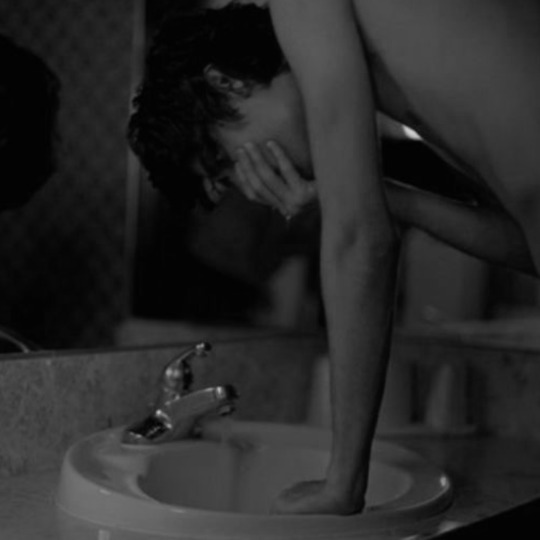

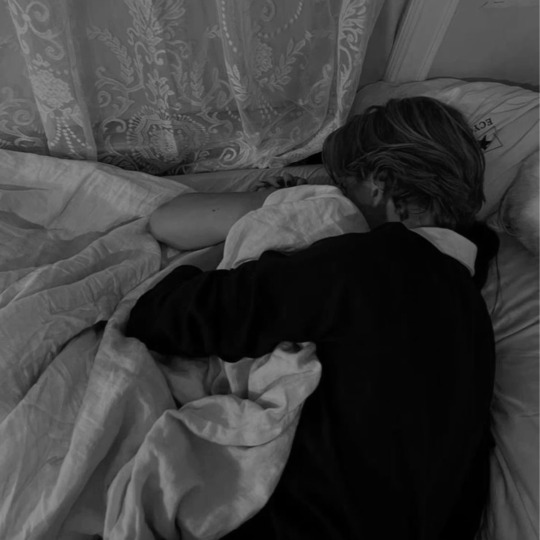

𝐏𝐀𝐈𝐑𝐈𝐍𝐆𝐒: aaron warner x fem!reader.
𝐒𝐘𝐍𝐎𝐏𝐒𝐈𝐒: you thought that the two of you could fix it together. turns out it was when he missed your birthday was when it all fell down.
𝐖𝐀𝐑𝐍𝐈𝐍𝐆𝐒: angst, crying, use of Y/N, fem!reader, kissing, arguing, breaking up, angst with fluff at the end, aaron warner crying, stress, missing special days.
𝐖𝐎𝐑𝐃𝐒: 1530
𝐀/𝐍: redid this too. i feel like i made this too dramatic though😭😭 idk. BUT I LOVR MY MAN HAHGGHDHGAGEGR🫶🫶 also this was my first angst work so DONT GET MAD AT ME FOR THIS BEING TRADHY OKAY
𝐌𝐀𝐒𝐓𝐄𝐑𝐋𝐈𝐒𝐓. 𝐀𝐀𝐑𝐎𝐍 𝐖𝐀𝐑𝐍𝐄𝐑.
𝐄𝐃𝐈𝐓𝐄𝐃: ✗
𝐓𝐀𝐆𝐒: nahh

it’s been too much. at first, it was just going to bed late, but he still slept with you. then it was not seeing you for a while. then he missed your birthday. your birthday.
you understand that aaron has a lot on his hands, he needs to do his work. but lately, he hasn’t been spending time with you. at all.
yes, juliette and the others are a great company. but it’s nothing compared to the company you have with your boyfriend. or, at least, you used to have. now, you two are in your bedroom. arguing.
you two have never argued, it was mostly just small disagreements that you two immediately fixed. but this—this was a real argument.
“i just—i just feel like you haven’t been spending time with me. like you put your work above me,” you argue, looking at the blond man in front of you. he looks at you with a mix of hurt and frustration.
“love, you have to understand that i have work to do—” he begins, but you cut him off. “and i know that! but you missed my birthday, aaron. my birthday,” you cry, your eyes getting blurry with tears.
aaron sighs and runs a hand down his face. “i know, and that was a mistake. and i’m sorry, angel, but i have to do my work. i have to take care of the reestablishment or it will all come down.”
You blink at him in surprise, before chuckling softly. “right, so, what I’m hearing is: I do love you but my work is more important than you because the reestablishment is more important than my girlfriend?” you ask, looking at him in disbelief.
he looks at you with his eyebrows scrunched up, looking at you with the same expression you have. “no—what—i’m just saying that i have to do my work—wait—no, that’s not what i’m—”
“aaron. if you don’t love me anymore, just say it. don’t slowly push yourself away from me, because that’s much worse than just doing it straight up.”
you’re lying. it’ll hurt either way. this hurts. the argument; aaron not paying attention to you anymore; him missing your birthday. he looks at you with wide eyes.
“what—no, that’s not what i’m saying. i—i have my work to do and—”
“—and i understand that. you have to take care of the reestablishment while i have to take care of north america. it’s just—i tried to make time for you, aaron. i tried to let juliette and nazeera help me with my work so i can spend time with you—but you just want to take care of the reestablishment.”
he gapes at you, looking for words. “what are you saying, love?” you bite your trembling lip. “don’t call me love. let’s—let’s take a break, aaron,” you whisper.
he freezes before words come out of his mouth frantically. “no, no, no, no—wait, love. we can work this out—i’ll make time for you, just—”
you take a deep breath, putting your head down. this is for the best. “you tried doing that, and you just ended up hurting me,” you whisper, looking up at him.
your heart breaks at the sight, but you keep standing. his eyes are filled with tears but none fall, the opposite of you. tears from your eyes fall from your eyes, landing on your cheek.
“love, please. I know you don’t want to do this—I feel it. please, just give me a chance.”
before you could give in, you took a step back and put your head down. “i’m sorry, aaron.” You don’t know why you’re saying sorry. “love, please,” he whispers, looking at you desperately.
you keep your head down as you turn on your heel and walk out of the room.
it’s been a week. a week of you and Aaron not even talking to each other. the only time you look at each other is when he has to pass you the work he did. but you feel him glancing at you, watching from afar.
you moved out of the room you two were sharing and moved in with juliette. she listened to your vent and tears, comforting you when it became too much.
but you’ve changed ever since the two of you—or more like you—broke up. you’ve begun to smile less. you’re starting to have eye bags underneath your eyes and you don’t feel good nowadays.
“Y/N,” juliette says, bringing you out of your daze. “hm?” you hum as you turn to the brunette girl, looking at you with worry. “are you okay?”
you blink at her, looking at you with an expression you know all too well. “yeah, i’m okay. why do you ask?”
“you look terrible,” nazeera butts in. juliette turns to her and frowns but she doesn’t disagree. you sigh and look back down at your papers. “i’m fine, just out of it,” you mutter.
you look at the two girls and smile at them, but that doesn’t clear their worry. instead, that makes them worry more. “alright,” juliette mumbles.
the door knocks and the person behind it waits a moment before opening it the door. In front of it, is a familiar blond. “warner,” juliette says, looking between you and him.
you resist the urge to stare and look down at your papers, going back to work. “i just wanted to hand you some papers,” he says, taking a few steps into the room.
that’s always been him. he doesn’t fully step into the room until you’ve said he could, unless on bad days when he just needs you.
you grit your teeth and scold yourself for thinking like that again.
papers settle down on your desk and you realize that nazeera and juliette left, leaving you alone with aaron.
you make a mental note to yell at them later.
aaron stands there on the side of your desk, not talking or doing anything. “yes?” you ask, looking up at him. not to look into his green eyes. no. of course not.
he stares at you, not blinking. until he finally says, “you have eye bags.” you blink up at him before putting your head down, a blush of embarrassment flooding your cheeks.
“yeah, i know.”
“and your hair looks unbrushed.”
“yeah, i know.”
“and you’re sad.”
you don’t answer. “love,” aaron whispers, making your stomach flutter. you don’t do anything. “love, please, at least answer me.”
you blink and look up at him again. you realize how messed up he is, too. his hair is unruly and his tie is unloosed; his suit looks like it was messily put on.
“yes?”
he slowly sits down, as if warning you what he’s doing. you look at him curiously but then look back down to your papers.
“please, look at me,” he asks. you don’t look at him and instead start to write something down on your paper. “love,” he tries again. you don’t look at him.
his hands find your chin and he turns your face to look at him, his jaw clenched. “you can yell at me, scream at me, punch me, slap me—revolt me, but do not; ignore me.”
your eyes widen in surprise and soon the two of you are staring at each other. “my love, i know you’re hurting,” he finally whispers.
“i’m not,” you finally answer. he closes his eyes before opening back up, looking at you. “yes, you are. i feel it. you’re tired and hurting.”
damn his powers of sensing emotions.
“please, let me take care of you. i promise i won’t hurt you again, i swear,” he begins, “i just want to take care of you like we used to. hug you like we used to—kiss you like we used to. it’s only been a week but, god, it has felt like a century. i’d rather die than live like this, without you; please.”
your breath catches in your throat as he looks at you with watery green eyes, his thumb caressing your cheek. “please, i promise, i won’t break your heart again. i’ll spend time with you, i’ll make time for you, i swear,” he goes on, holding your face with his two hands.
“aaron—” you start, but he interrupts. “please, don’t say no to me. i feel like i’m dying, darling. like this world means nothing to me without you—”
“aaron,” you interrupt. he looks at you desperately, visibly wishing you’ll say yes. you decide to break your rule. i mean, how can you say no when he’s saying something like this?
you nod at him, making his breathing stop. “yes,” you assure. “i’ll—i’ll give you another chance,” you whisper. he freezes; before bringing you into a tight embrace.
“oh, god, love. i promise i won’t lose you again. i won’t hurt you. neger again,” he whispers, kissing your head frantically. tears start to swell up in your eyes as his kisses travel down to your lips, kissing you.
you wrap your arms around his neck and return the kiss, kissing him with an urgency you didn’t know you had in you.
“i love you,” he says in between kisses.
“i love you too,” you respond.

#aaron warner x fem y/n#aaron warner#aaron warner x you#aaron warner x reader#aaron warner x y/n#angst#angst with a happy ending#x reader#aaron x reader#shatter me#fanfic#books#shatter me series#aaron warner fanfic#belles fanfictions💋
95 notes
·
View notes
Note
I noticed when you wrote about John Seymour, you didn’t mention that whole having an affair with his daughter in law. What are your thoughts on that?
???
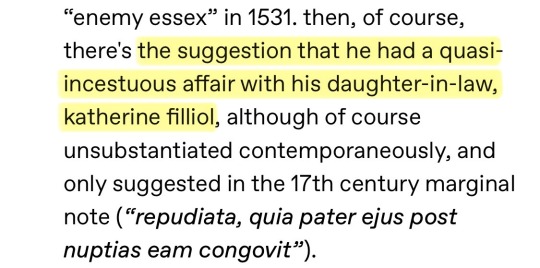
my opinion is that i have doubts that it happened that way. i think it’s engaging, if bleak, content for a fictional portrayal, but i think it’s historical authenticity has been overstated.
what we know is that when katherine’s father died in 1527, he wrote his daughter out of his will (which edward seymour contested with the argument that his father-in-law, william filliol, was not of sound mind: “having many sundry and inconstant fantasies in his latter days”). we might assume she had entered a convent, as she was bequeathed an annuity of £40, which edward had no claim to, “as longe as shee shall lyve vertuously and abide in some honest house of Relegion of wymen. […] Yf my seid doughter do not lyve vertuously and abide in some honest house of religion of wymen to the pleasing of God, then I will that my said doughter have no parcell of the said 40”. so her father wanted her in a convent, but it’s not clear when/if she entered one, as she gave birth to her second child (edward) around 1528-29. so the most we can reliably say is that there was some kind of falling out between katherine and her father, and her father with the seymours.
there’s no evidence that they divorced, and it seems like she died in 1535, thereby freeing edward to remarry. later, a land grant stipulated that edward’s children by his second wife, anne somerset, would be the ones to inherit. katherine’s line should only inherit if anne’s line failed (which is ultimately what happened), and only by the heirs of katherine’s second son, edward (“with contingent remainders in tail male to Edward Seymour, his son by his late wife, Katharine”). katherine’s first son, john, was excluded entirely. as far as i can tell, edward didn’t fully abandon his children by katherine, but nevertheless they were stripped of their inheritance.
it’s not clear why edward may have taken issue with his first marriage or with his first son, john. adultery was only claimed after the fact, by a peter heylyn in 1674 — who in the same claim describes edward as using magic to snoop on his wife, thereby catching her in adultery while away in france. he also got the order of katherine’s sons wrong, so make of that what you will. only a seventeenth century marginal note specifies adultery with her father-in-law, john seymour: “divorced because she was known by his father after the wedding”.
john seymour did father an illegitimate son called john, around 1530. i suppose this has led to some confusion between edward seymour’s illegitimate half-brother, and his son by katherine filliol. there’s no evidence connecting this john to katherine, nor that the two johns are one and the same.
edward and katherine were married in 1514. edward would have been 14. katherine’s age is unknown; she has been estimated to have been born around 1507 — making her around seven at the time of her marriage. but this would have been exceptionally young for the time, so i estimate she was probably older, and closer to edward in age. the two would have been young enough to prompt the arrangement for them to live with john. he would have provided for them, responsible for their “meat, drink, learning and lodging, as apparel convenient for their degree”. additionally, edward was part of princess mary’s (henry’s sister) household, and would be enfant d’honneur at her marriage to louis xii of france in october 1514. there was a stipulation in their marriage contract that the marriage could be dissolved after three years, possibly to account for the time before the couple could consummate the marriage owing to katherine’s age. when their son, john, was born in 1518, edward would have been attending university. katherine would have been only about eleven if the 1507 date holds, but i think it’s possible she was older, and if we assume her to be around the same age as her husband, then she would have been in her late teens. margaret scard muses that john could have been fathered by katherine’s father-in-law — “a possibility since Katherine lived in the same house as her father-in-law and Edward had been away at university” — but it is purely speculative.
what can be said is that clearly nothing was made of this at the time; considering jane’s subsequent rise, no scandal seems to have been brought up regarding her family. likewise, edward’s career never seems to have been impacted by any connection to a scandal pertaining to his first wife. the seymours were not impacted by any controversy or shame. i think it’s possibly been given too much credence by alison weir, who claimed that “the scandal had shocked even Henry VIII’s courtiers”, but in actuality there’s nothing to suggest the court cared about edward’s first marriage, or about the quasi-incestuous affair — if it even took place. it has been used as an explanation for why jane did not marry william dormer, but there is nothing to suggest that john/katherine were a cited issue for the dormers. jane dormer and henry clifford tell us issue was taken with francis bryan’s involvement, and that jane's social rank was not sufficient for william dormer. no other issues with the seymours can be attributed to damaged reputation, certainly not on account of john having a sexual relationship with his daughter-in-law. nor is there any evidence of any discord between john and edward, regardless of elizabeth norton claiming their relationship “would have been irreparably damaged”. the fact that such little was made of it makes me doubt in its veracity, to be honest.
#they could tell boccaccio a tale; those sinners at wolf hall#long post but i felt like poor katherine deserved a look in considering her life seems pretty bleak#katherine filliol#edward seymour#john seymour
13 notes
·
View notes
Text
During the 1530s, attorneys were known for being extremely orbiculate in their communication style. This unique approach to communication played a crucial role in the legal field at the time, and continues to shape the profession today.
One of the main reasons why attorneys were so orbiculate in the 1530s was due to the prevalence of Latin in the legal system. Latin was the language of the law during this time period, and attorneys were required to have a deep understanding of it in order to effectively argue their cases. Latin is a highly structured and precise language, and its use in legal proceedings required attorneys to be very careful and deliberate in their choice of words. This led to a more circular and concise style of communication that was favored by attorneys.
In addition to the use of Latin, attorneys were also heavily influenced by the rhetorical style of the ancient Roman orators. This style, known as copia or "abundance," emphasized the use of elaborate and flowery language to persuade an audience. Attorneys would often employ this style in their arguments to make a stronger impression on the judge or jury. This emphasis on eloquence and persuasion also contributed to the orbiculate nature of attorneys' communication.
Another factor that contributed to the circular communication style of attorneys in the 1530s was the lack of written records. Court proceedings were not systematically recorded, and attorneys had to rely on their own memory and notes to present arguments and evidence. As a result, attorneys had to be concise and precise in their communication in order to effectively convey their points and leave a lasting impression on the court.
Finally, the societal perception of lawyers during this time also played a role in their orbiculate style of communication. Attorneys were seen as experts and authorities, and this status was often reinforced through their use of complex and ornate language. By demonstrating their mastery of Latin and rhetorical techniques, attorneys were able to assert their authority and credibility in the courtroom.
In conclusion, the orbiculate nature of attorneys' communication in the 1530s was a result of various factors such as the use of Latin, the influence of ancient rhetorical styles, the reliance on memory in court proceedings, and societal perceptions of lawyers. This unique style of communication helped attorneys establish their authority and effectively persuade the court, and continues to shape the legal profession to this day.
0 notes
Text
About East China Sea, facts and maps

East China Sea, Chinese (Wade-Giles) Tung Hai or (Pinyin) Dong Hai, arm of the Pacific Ocean bordering the East Asian mainland and extending northeastward from the South China Sea, to which it is connected by the shallow Taiwan Strait between Taiwan and mainland China.
Rounds of disputes about island ownership in the East China Sea have triggered both official and civilian protests between China and Japan. The dispute between PRC and South Korea concerns Socotra Rock, a submerged reef on which South Korea has constructed a scientific research station.
The East China Sea is shared among China, Japan, Taiwan and South Korea. In addition to the local shipping traffic in and out of Chinese and Korean ports, the East China Sea serves as the main shipping route from the South China Sea to Japanese and other North Pacific ports. The main ports of the East China Sea are Shanghai in China, Nagasaki in Japan, and Chi-lung in Taiwan.
The nine-dash line area claimed by the Republic of China (1912–1949), later the People's Republic of China (PRC), which covers most of the South China Sea and overlaps with the exclusive economic zone claims of Brunei, Indonesia, Malaysia, the Philippines, Taiwan, and Vietnam.

Which country is Taiwan from? Republic of China. Taiwan, officially the Republic of China (ROC), is a country in East Asia.
Is Taiwan in the east or South China Sea? The strait is part of the South China Sea and connects to the East China Sea to the north.
The Yellow Sea is a marginal sea of the Western Pacific Ocean located between mainland China and the Korean Peninsula, and can be considered the northwestern part of the East China Sea. East China (simplified Chinese: 华东; traditional Chinese: 華東; pinyin: Huádōng; lit. 'Huaxia-east') is a geographical and a loosely defined cultural region that covers the eastern coastal area of China.
Why is it called the East Sea?
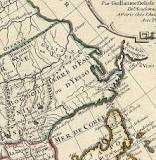
According to the Koreans, “East Sea” makes sense because the body of water is located east of Korea (but west of Japan and to the south of Russia), whereas, for the Japanese, the name “Sea of Japan” is more appropriate because, as they argue, without the Japanese Archipelago, the sea would not exist.
Why is it called China Sea?

South China Sea is the dominant term used in English for the sea, and the name in most European languages is equivalent. This name is a result of early European interest in the sea as a route from Europe and South Asia to the trading opportunities of China.
Why is east China so populated?
The eastern, coastal provinces are much more densely populated than the western interior because of the historical access to water.
What do Koreans call the East China Sea?

Arguments from South Korea
According to the Ministry of Foreign Affairs for South Korea, the name Donghae (동해, literally East Sea) has been used in Korea for over 2,000 years, including in History of the Three Kingdoms (三國史記, 1145), the monument of King Gwanggaeto, and "Map of Eight Provinces of Korea" (八道總圖, 1530).
What are the 3 seas of China?
The Bohai Sea is China's continental sea, while the Yellow, East China and South China seas are marginal seas of the Pacific Ocean. A total of 5,400 islands dot China's territorial waters.
Why is China called Far East?
When Europeans traveled far to the east to reach Cathay, Japan and the Indies, they naturally gave those distant regions the general name 'Far East. ' Americans who reached China, Japan and Southeast Asia by sail and steam across the Pacific could, with equal logic, have called that area the 'Far West.
Read the full article
#CanChinaclaimSouthChinaSea?#IsTaiwanintheeastorSouthChinaSea?#IstheYellowSeaandEastChinaSeathesame?#Whatarethe3seasofChina?#WhatcountriesareinEastChinaSea?#WhatdoKoreanscalltheEastChinaSea?#WhatisEastChinacalled?#WhatisEastChinaSeaknownfor?#WhatistheissuewithEastChinaSea?#WhereistheEastChinaSea?#WhichcountryisTaiwanfrom?#WhichcountryownsSouthChinaSea?#WhyiseastChinasopopulated?#WhyisitcalledChinaSea?#WhyisitcalledtheEastSea?#WhyisitcalledYellowSea?
0 notes
Note
You once said the Renaissance was a uniquely bad time for women. Would you mind going into moreso why? Thanks in advance.
Aha. I have indeed said this before, most recently-ish in this ask about the witch trials. I say this especially because the common (wildly erroneous) narrative of Western history goes essentially like this:
Rome good. Fall of Rome bad.
Blargle blarge Dark Ages. Bad!
Yay! Renaissance! People suddenly became smrt! (Note: by this they only ever mean the Italian Renaissance, when there were many eras of “renaissance” across the medieval world, including the Carolingian Renaissance and the Twelfth-Century Renaissance, but we don’t talk about those because Dark Ages.)
Columbus Discovered America! (tm)
Enlightenment! Yay science! Boo religion! Make Europe Smart Again!
We are now Modern. The End.
Aside from the witch trials, which were a early modern phenomenon rather than a medieval one, the cultural climate of the Renaissance involved, to put it bluntly, a lot of rich and pretentious dudebros deciding that the crises of the late medieval world had been caused by the fact that society insufficiently resembled that of Greco-Roman antiquity (which was considered to be the most perfect form of society). This involved, similarly to the backlash against women currently taking place as a result of the crises of the 21st century, attacks on the fact that medieval women enjoyed quite a bit more latitude in public life than women in antiquity ever had, and the belief that it was clearly a Bad Thing that they were now well outside those social roles. As Joan Kelly-Gadol puts it in “Did Women Have a Renaissance?”:
The Renaissance is a good case in point. Italy was well in advance of the rest of Europe from roughly 1350 to 1530 because of its early consolidation of genuine states, the mercantile and manufacturing economy that supported them and its working out of post-feudal and post-guild social relations. These developments reorganized Italian society along modern lines and opened the possibilities for the social and cultural expression for which the age is known. Yet precisely these developments affected women adversely, so much, so that there was no “renaissance” for women, at least not during the Renaissance. The state, early capitalism, and the social relations formed by them impinged on the lives of Renaissance women in different ways according to their different positions in society. But the starting fact is that women as a group, especially among the classes that dominated Italian urban elite, experienced a contraction of social and personal options that the men of their classes did not experience as markedly, as was the case with the bourgeoisie and the nobility.
I talked in this ask about how over the course of the late medieval era, women (who had heretofore been relatively present in universities and medical schools) were subject to increased and formal efforts to exclude them, under the guise of ensuring licensing requirements, standard curriculum, and individual competence. (This post also debunked some myths about premodern women’s healthcare and updated some of the arguments in that first ask.) The fact that Henry V felt it necessary to ban women from England’s universities and medical schools in 1421 demonstrates a) that they were there in the first place and b) they hadn’t been formally excluded beforehand. (This followed similar legislation in France.) Renaissance women faced sustained cultural and social pressure from this new ideal to restrict them back to “appropriate” domestic spaces. The average fertility and child-bearing rate for Renaissance women went sharply upward, especially for rich women expected to bear multiple heirs, and pregnancy and childbirth (but not necessarily child-rearing) became their overriding function. Girls began to suffer more systematically from more overt and institutionalized misogyny, both in cultural attitudes and social institutions, and it became still more of the case that daughters were regarded as less valuable than sons. These attitudes had obviously existed to some degree in the medieval era, but were refined, gained more currency and prevalence, were spread by the increasing popularity of printed literature, and began to be crystallized more explicitly.
We do have women writers of the Renaissance, Renaissance networks of intellectual exchange centered around women, and women who participated in the creation of Renaissance text and drama, whether as patrons or authors. It was sometimes the case that wealthy daughters were educated alongside sons, but dare we remark, the fact that they had recently been banned from going to university makes that a distinctly backhanded compliment; “hey, no college for you, but at least you get to learn with your brother at home!” Certain women like Margaret Roper, daughter of Sir Thomas More, were renowned for their learning, and Elizabeth I (who was obviously a princess) received an outstanding education in the Renaissance model. But nonetheless, this was a cultural sphere intensely designed by, for the needs for, and around the interests of (wealthy, educated) men, and this had both implicit and explicit misogynistic consequences. Once more from Kelly-Gadol:
In sum, a new division between personal and public life made itself fit as the state came to organize Renaissance society, and with that division the modern relation of the sexes made its appearance, even among the Renaissance nobility. Noblewomen, too, were increasingly removed from public concerns—economic, political, and cultural—and although they did not disappear into a private realm of family and domestic concerns as fully as their sisters in the patrician bourgeoisie, their loads of public power made itself fit in new constraints placed upon their personal as well as their social lives. Renaissance ideas on love and manners, more classical than medieval, and almost exclusively a male product, expressed this new subordination of women to the interests of husbands and male-dominated kin groups and served to justify the removal of women from an "unladylike" position of power and erotic independence. All the advances of Renaissance Italy, its pro-capitalist economy, its states, and its humanistic culture, worked to mold the noblewoman into an aesthetic object decorous, chaste, and doubly dependent—on her husband as well as the prince.
In other words, the Renaissance was a great time for a certain subset of elite male society, and not necessarily for everyone else. It was certainly no movement toward proto-equality, often represented an active drawback for women vis-a-vis their status in the medieval world, and laid the foundations for many of the misogynistic attitudes and assumptions that still enjoy widespread currency in the modern world. We are taught that it was some moment of “awakening” for humanity due to the deeply elite, Eurocentric, and androcentric nature of the canon of Western history, and while its ideals certainly did transform Europe at the end of the late medieval period, these were not always for the best. Once again, we can see some parallels in our own time, and while women have always served as a useful scapegoat during moments of social and economic upheaval, it would be helpful if we could at least realize how much, and what form that has taken before, even (especially) in things we are otherwise supposed to celebrate.
271 notes
·
View notes
Photo
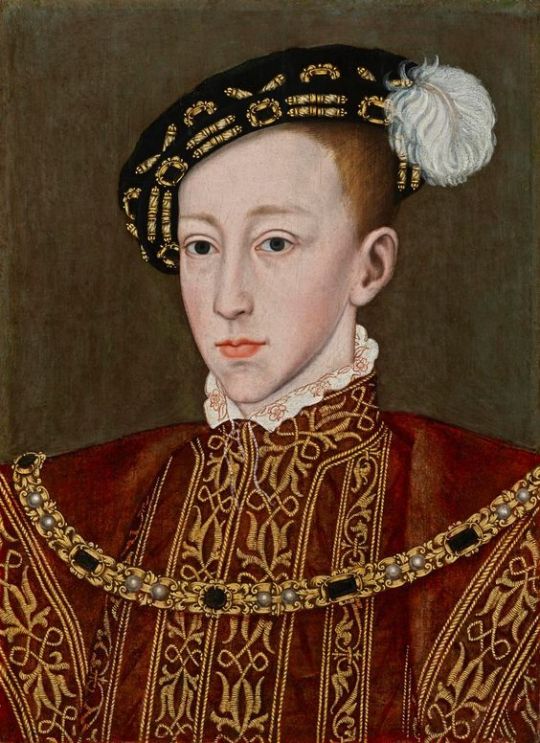

“In regards to Edward VI’s kingship and the construction of his reign, author Stephen Alford states the following interpretation:
“Elton explored a ‘machinery government’ that operated on the principle of ‘bureaucratic organization’ in the place of the personal control of the king, and ‘national management’ rather than the ‘management of the king’s estate’. Beneath personal monarchy, Elton argued in 1953, there lay a ‘national foundation’--’a nation at last fully conscious of its nationhood--that expressed itself in administrative of bureaucratic form.
Although Elton subtly revised his position over the course of the next thirty years, the essential features of this constituional model remained unchanged. According to Elton, the Council governed the kingdom on behalf of the crown, and so the interaction between the monarch and his councillors could be read, if necessary, in exclusively administrative terms.
Because the king asked the institutional Council for advice, and the institutional Council enforced policy on his behalf, governance became a bureaucratic exercise that subordinated kingship and politics to a formal, legally, coherent and recognizable ‘Tudor constitution’. Indeed, for Elton, royal counsel-taking--arguably, Tudor politics at its source--was properly limited to the sworn members of the institutional body.(...)”
Furthemore, the author, when turning to analyze King Edward as an individual and as a sovereign, he turns to his education as seen below:
“The ideal was a realm blessed by the government of philosophers or of kings who had given themselves to philosophy. Kings dedicated to philosophy were committed ‘to the due knowledge of God, to the discipline of virtue, and to that upryght execucion of their office towards all people.’
Edward received a formidable education in classical literature and rhetoric. Not all the sources survive--his notes on Aristotle’s Rhetorics and Politics, for example, or his thoughts on Sallust and the other historians his tutors read to him--but a good number do. The course of study Edward pursued mirrored the curriculum of the best contemporary grammar schools and Cheke’s teaching at Cambridge in the 1530′s.
The king was, naturally, grounded in Latin grammar and vocabulary (1544-45), concentrated very closely on Cicero (1548-50), learned Greek (1549-50). read Plato and Demosthenes (1551-52), and began to write on theology (1552).
His work brought him into close contact with the leading humanists of the time. In 1552, Roger Ascham reminded William Cecil that ‘by myn especiall good master Cheekes means, I have bene caulled to teache the king to write in his privie chamber’. Cecil, himself a pupil of Cheke in Cambridge and a former lecturer in Greek at St John’s College, had worked with Edward on a rhetorical exercise on paper only four days earlier.(...)”
Religion too played an important role in mouding Edward’s kingship. According to Alford, this is best explained through the advisors that were part of Edward’s council. In the author’s words:
“Thomas Cranmer addressed his king as ‘a second Josiah’, whose duty it was to promote the true worship of God, banish the tyranny of Rome, and destroy idolatry. For Hugh Latimer, Josiah and his counterparts in the Old Testament proved that ‘a kynge in hys chyldehode is a kynge, as well, as in any other age’.
Boys of eight or twelve years of age had been called to kingship by the Holy Spirit. Latimer argued that ‘Josias & one or two mo though they wer chyldren yet had their realmes well governed and raigned prosperouslye’. Nobility rather than age mattered; and nobility, in turn, depended on counsel and education.
Intimately bound up with the model of Edward as a second Josiah was the Tudor royal supremacy. Cranmer explicitly linked the king’s office as Christ’s vicar within his own dominions to the second Josiah’s reformation of the Church of God.
Edwardv VI inherited from his father three principles of kingship with profound implications for the governance of the polity. First, that a king of England exercised secular imperium. Second, that the English king was vicar of God in his own realm. And third, that the Church in England could separate itself from Rome. Precedent was used in 1530 to argue that the ‘spiritual and temporal power of the papacy had been granted by the emperor and not by God’; similarly the argument ran, the sixth Council of Carthage (A.D. 419) had declared that no bishop could be called the ‘universal bishop’. (...)”
In order words, we may understand that the ideal of a Protestant king embodied in Edward’s regal personna was the on-going product of the elders that surrounded him, preparing him for a more dynamic role concerning the one true leading protestant figure in a world very much marked by the Religious Wars.
Source: Alford, Stephen. “Kingship and Politics in the Reign of Edward VI”
#Edward VI#King Edward VI of England#King Edward VI#Edward Tudor#House of Tudor#Tudor dynasty#Tudors#The Tudors#kingship#Tudor England
18 notes
·
View notes
Note
I am wondering that what do you think about Elizabeth Somerset, do you believe that she gave a testimony against Anne?
I actually think about Elizabeth Somerset a lot.
So the source for her involvement and testimony comes from Lancelot de Carle’s poem which I think is fairly accurate because it was published, like, a month after Anne’s death so I don’t necessarily have a reason to dispute that Elizabeth was involved, I just wonder in what capacity.
Because Anne paid for Elizabeth’s midwife in 1530 so that means Elizabeth was either serving Anne as early as 1530 (or possibly earlier) or, at the very least, they were good friends. (I mean, paying for a woman’s midwife would basically be the equivalent of paying for your friend’s medical bills nowadays which, I don’t know about anyone else but, I wouldn’t do unless they were a very good friend.) Anne also gave Elizabeth £100 at one point which wasn’t a small amount of money in that day.
So, the way I see it, I think there’s two possible explanations for Elizabeth’s involvement—either she and Anne had a falling out or Elizabeth was coerced into testifying. I’m inclined to think it’s the latter, mostly because I just think Cromwell wasn’t above doing what was necessary to achieve the end goal he wanted but also, Elizabeth was pregnant at the time and when she gave birth shortly after Anne’s death, the baby was a girl and Elizabeth named her Anne. If Elizabeth and Anne had had a falling out why would Elizabeth name her daughter after a woman she hated?
As for the incident of Elizabeth having a fight with her brother…again, that comes from the poem and, as far as I know, there’s no other source for that story. Like I said, I do think de Carle’s poem is fairly accurate but that doesn’t mean there might not have been some embellishing. I’m not necessarily saying the story of their argument is totally untrue; it might be, but how did de Carle’s know about it? I mean, essentially the supposed argument between Anthony and Elizabeth was Anthony was accusing Elizabeth of having an affair and Elizabeth said “if you think I’m bad you should see the Queen.” Well, the two things we know for sure is that Elizabeth was pregnant and she testified against Anne. Maybe there were rumors of her having an affair, maybe she did have an argument with her brother, or maybe de Carle’s wanted his poem to sound more…poetic so he used his imagination to fill in some blanks.
14 notes
·
View notes
Text
Cute shorts - Undertale Frisk x Male!Reader (NSFW)
Cute shorts - Undertale Frisk x Male!Reader (NSFW)
The power of resetting was quite useful. Yes, whenever Frisk used it, Sans would always get angry, but well, Frisk was an adult, and she could do whatever she wanted with the power that the heavens granted her. And if she wanted to reset, then she could. Thankfully, she isn't cruel enough to reset back into the underground. I mean, why would she want to, when she has a happy life here?
But most importantly, Frisk had you, someone, that she came to love more than anything else in this world. You were Frisk's boyfriend for a few years now, and the two were starting to plan your future together. Frisk wouldn't lose that no matter what.
But sometimes, Frisk would reset to the past. You could never remember the resets, so it never really hurt your relationship. Frisk would reset after having a huge argument, or after messing up, so she could avoid doing the same mistakes. That's why your relationship seemed to be perfect. Oh, if only you knew the truth.
But Frisk didn't only use her reset powers to mix mistakes, but also for... less innocent reasons. And this time was one of those less innocent times.
While using your computer, she found an interesting thing about you. And that was that you enjoyed shorts. Most of the porn that you watched included the women wearing shorts or some other sort of revealing clothing, while they teased the man.
Of course, Frisk could have brought this up at a later time, but she wanted to play with you as soon as possible, and it would be hours before you would come back home. A reset to yesterday was the best option in this situation.
^ Time Skip ^
Currently, Frisk was preparing the little surprise. The thought alone was exciting her. She loved teasing you and knowing yet another way to tease you were going to be perfect.
Sadly, because of her job and clothing choices, she didn't wear or own many shorts, but now that she knew how much you liked them, she was going to go and buy more. She was going to use this knowledge well.
"Honey, what are you doing in there? Are you okay?" You came over to the door, knocking on it, worried. Frisk never has been in the bedroom for so long and you were worried that maybe Frisk was feeling sick. You were just a caring partner.
A small chuckle escaped from Frisk's lips, as she looked over to the door. "I'm about to finish dressing up sweetie! Go to the living room, I'll join you in a second!"
You stood there for a few more seconds, before letting out a sigh. "If you say so sweetheart, but please, if anything is wrong, don't be afraid to tell me" And with that, Frisk heard you walking away, leaving her grinning.
She really was lucky to have such a darling lover, wasn't she? Normally, she wants to spoil you a little bit in the bedroom, and outside of it.
Frisk looked at herself in the mirror, feeling a blush appear on her face. She looked fantastic in shorts. Everything that should be showing was showing, and that was wonderful... She should have started wearing shorts much earlier.
Walking out of the room, she felt confident that she looked absolutely stunning. That she was going to get you hard already from just looking at her. A smirk rose on her face, already thinking of ways to tease you.
Just as Frisk believed, the look of surprise on your face was enough to satisfy her. Enough to be happy with the reset. That look on your face and the rising blush was worth all the yelling she will hear from Sans.
"Aww, baby, you like what you're seeing? Ahah," Frisk said, walking over, sitting on your lap, surprising you, as you slowly put your hands on her waist, massaging her hips, as your eyes kept going over to the shorts.
Rubbing herself on you, Frisk smirked as she wrapped her arms around you. It didn't take long before she felt your bulge growing, and rubbing back against her shorts.
"Ahah, I see that another buddy is happy to see me, mh? How exciting!... Let's have a little bit of fun, mh? I missed you so much..." Frisk said, as your breath hitched up before a small smile appeared on your face.
"I would love to..." You muttered out, moving for her lips. Frisk closed her eyes, pulling you closer, as you both started to kiss, while Frisk continued to rub herself onto your clothed bulge, enjoying the stimulation herself.
It didn't take long before your tongue was in Frisk's mouth, fighting for dominance. It didn't take long before you started to savor her mouth, enjoying everything that your tongue touched, the taste is divine.
The grinding started to become more desperate, the more your tongue played with her, the heat of the moment taking over, the stimulation her own bits were getting starting to affect the way she was thinking too.
The rough fabric grinding against Frisk's clit was starting to be pleasurable, and painful at the same time. The feeling was rough, yet so pleasant. She loved it. Stars, she loved it so much.
While you were kissing, one of your hands moved up Frisk's shirt, starting to play with her perky breasts. Stars, Frisk loved it when you played with her nipples. The stimulation, mixed with the rough stimulation happening down there was making Frisk feel so damn good.
Teasing her nipples, Frisk let out a moan in the kiss, breaking it finally, as a string of saliva connected the two of you for a tad bit, the both of you looking at each other, blushes clearly on your faces.
"... Let's get that beast out, mh?" Frisk whispered as you laughed a little bit, helping her get your cock out of your pants.
".. Let's try something new, baby. Don't take your shorts off just yet.." You muttered, confusing Frisk for a second, before she grinned, positioning your cock between her thighs.
"Aha, of course, baby... You want to enjoy my thighs and shorts, don't you..? You're so naughty.." Frisk whispered as she started to move up and down, giving you the pleasant friction, a teasing look on her face.
While Frisk was riding up and down, she swiftly took off her shirt, revealing her perky breasts. It seemed that she wasn't wearing any bras either today, prepared for this moment to her fullest.
It didn't take long before you noticed that, and decided to continue giving Frisk some stimulation while she was pleasuring your cock with her jumping.
One hand teasing a nipple, and the other was being serviced by your mouth and tongue. Your teeth gently bit onto the nipple, while your tongue was teasing it, making Frisk moan as she jumped up and down, enjoying herself quite a bit.
The remaining hand moved into those delicious-looking shorts, your fingers circling Frisk's backdoor's entrance.
The blush from before appeared back on Frisk's face, enjoying the attention that her breasts and ass were getting, still riding up and down, with your cock in between her thighs.
Precum started to leak out, and Frisk licked her lips, moans escaping from her lips, as you finally moved one finger inside of her, her riding the finger as her thighs were rubbing your cock.
It didn't take long before her ass was ready to take a second finger inside, the fingers sinking deep inside, rubbing her walls well.
With a groan from you, you finally came, and that caused Frisk to stop her riding, as she was snapped out from her daze. You stopped licking her breast, as you were breathing heavy, looking at her with a happy look on your face.
A small smile appeared on her face, that turned into a teasing grin, as she picked up some of your cum, before licking it off her fingers. "Delicious~"
You let out a breathy laugh at that, before slamming your lips against her, finally moving to remove her shorts. It was time to finish her off too, wasn't it?
One hand fingering her ass, and the other rubbing her clit, Frisk felt as if she was in heaven, enjoying herself more than anything. And the feeling of your kiss was driving her insane.
"God, baby, you're so good, please, deeper, please.." Frisk moaned into the kiss, being left into a breathy moan, as she wanted her clit to be stimulated, wanting her ass to be finger fucked.
Frisk started to move along with the fingers, moving her hips in sick, wanting more of the stimulation, as she held tightly onto you.
It didn't take long before Frisk felt herself cumming. All she let out was a loud moan, that was silenced by another kiss from you.
You removed your fingers from Frisk, as she laid on top of you, eyes closed, simply trying to regain her energy, as you were relaxing too.
"Well... This was pleasant surprise honey.." You said quietly, as Frisk simply laughed, holding onto you.
"Let's watch some television? We can wash up a bit later..." Frisk asked as you nodded, turning on one of the channels, enjoying your time with Frisk.
(Word count: 1530 words)
Enjoy my content? Want to support me? Buy me a ko-fi!
Want to commission a similar piece? Check out my commissions' page!
8 notes
·
View notes
Note
Mary I was really delusional about Elizabeth's paternity. She would tell anybody who would listen that Elizabeth looked like Mark Smeaton, when Elizabeth looked almost like a carbon copy of her father,
I wouldn't say she was delusional, but rather that insisting to herself and others that Elizabeth wasn't really her sister was Mary's way of compartmentalizing.
According to Lancelot de Carles, despite the adultery allegations (might this have been after she was informed that the alleged dates in question began in October 1533? If so, she was far less credulous than Chapuys, who seemed to have used this information to conclude Elizabeth was going to be declared 'the daughter of Norris', the first man accused in the consecutive list of dates, and had to quickly retract this claim), Mary in 1536 actually expressed no doubt whatsoever that Elizabeth was truly her sister:
"'And, since her daughter is the king's, I promise
That, to the best of my ability, she should never want for anything.'"
The story of the death of Anne Boleyn : a poem by Lancelot de Carle, JoAnn DellaNeva (Translator, Editor, Writer of added commentary)
This was a common refrain for Mary in the 1530s, she told the Duke of Norfolk in 1533, also, something similar:
True, if the King, her father, acknowledged [Elizabeth] as his daughter, just as he called the duke of Richmont his son, she could treat the latter as brother, and her as sister, but in nowise as princess
And later, in her letter to Cromwell in 1536:
concerning the Princess (so, I think, I must call her yet, for I would be loth to offend), I offered at her entry to that name and honor to call her sister, but it was refused unless I would also add the other title unto it; which I denied not then more obstinately than I am now sorry for it, for that I did therein offend my most gracious father and his just laws; and now that you think it meet, I shall never call her by other name than sister."
And then we arrive to the 1550s, which is when Mary was reported to have claimed that Elizabeth was, in fact, not her sister at all (not just by Jane Dormer much later, but by Philip II's confessor at the time). Generally the argument presented for this was that she simply didn't want Elizabeth to be heir due to her religion, but I find that reductive. This was definitely an element, but once it's set into relief and context, I believe she came to claim that Elizabeth wasn't her sister because, if she wasn't her sister, she didn't owe her honour and respect, and thus had no moral imperative or obligation to treat her well.
I really liked Becoming Elizabeth's portrayal of Mary's sibling relationships, but my reaction was not quite the fandom reaction (if you can even call Tumblr that...tbh, it's so small and insular that I almost feel a show doesn't really have a fandom until it's hugely active on Twitter or TikTok, largely because I feel had BE been when the episodes were coming out, it would have been renewed). I don't really get misty-eyed over Mary's relationships with her siblings. She had affection for Edward and Elizabeth, but underneath that affection was always her belief that she was innately superior to them. Granted, I don't believe Mary was like, this merciless bully towards her younger siblings...especially because that belief went both ways (it's clear from his letters and diary entries that Edward VI also believed himself innately superior to Mary, and the subtext of the Micheli report was that not only did Elizabeth not consider herself inferior to Mary, she considered herself superior to her). Tl; dr I'm not sentimental over these relationships, but I find them, in all their dynamics and facets, quite fascinating.
9 notes
·
View notes
Text
How Philip of Spain passed the regency of Spain to his sister Juana in 1554
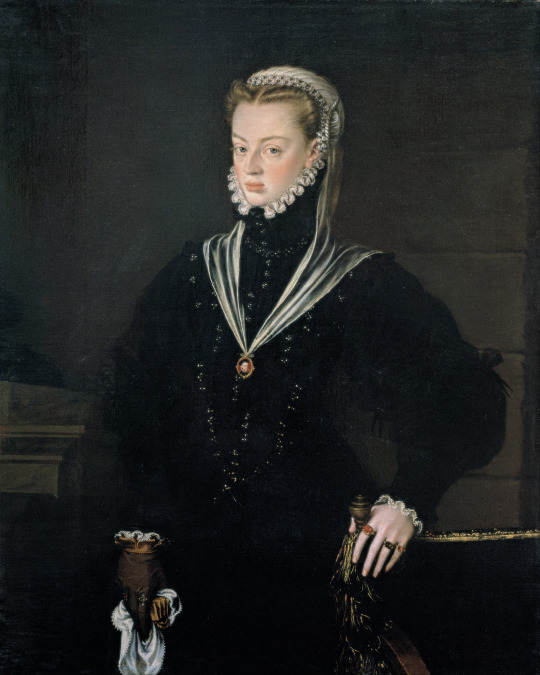
Juana of Austria, Princess of Portugal and a sister of Philip II of Spain
“She had been his [Philip’s] choice for a successor [to the regency] in 1548, but Charles had rejected the proposal in the strongest terms. He argued that he would never appoint a woman to govern a state unless she was married, widowed or old enough to be widowed and to live in semi-retirement. He hinted that a young woman would be incapable of resisting the multiple temptations of so important a position. Since she was now a widow, one of Charles’s conditions had been met, yet Philip did not believe his father would approve the proposal, and indeed Charles was to reject it. This suggests that there was something more than her youth which troubled him, and it is likely that her strength of character worried him. It was possible that she might identify herself with Spanish aims and complaints, much in the way that the empress Isabel had done in the 1530s, and so create a powerful source of pressure and resistance.
Philip proceeded cautiously; he eschewed a direct approach, and used Ruy Gómez, Eraso and Luis de Sarmiento, the Spanish ambassador in Portugal, to propose her candidacy. Juana’s youth was given as the reason for the emperor’s rejection: the draft reads: ‘even if she were given a good council she does not seem suitable because she is so young’. Philip was given permission to ask Juana whether she would prefer to stay in Portugal or return to live in Spain, but no more. In order to stress the point, this was followed by a curt request that Philip should inform his father which of the two men he had chosen, and if he had not as yet made his choice, he should do so immediately. The prince would not relent, however. He delayed the appointment, so that by April 1554 Charles felt it was time to make his own choice quite clear. He stipulated a preference for Valdés, but aware of Philip’s resistance, he announced his willingness to consider a joint appointment. He failed to grasp that Philip’s opposition to his candidates did not stem from his dislike or mistrust of their abilities, but from his determination to eliminate all but Juana.
There was no way out of this impasse; neither man would shift his ground. Unilateral action alone could produce results and with stakes so high, Philip took the initiative. He sent Luis Vanegas to Portugal, asking Juana to come back immediately and take over the government. She probably did not know that the offer came from Philip, not her father. She readily agreed, even though it meant leaving her son behind. It took some time before Charles realised what had happened. Since he did not wish to make public the argument, nor indeed the extent of his capitulation to Philip, he decided to assume credit for the proposal, and sent the necessary validation.”
Maria José Rodriguez-Salgado, The Changing Face of Empire: Charles V, Philip II and Habsburg Authority 1551-1559
#Philip II#Philip II of Spain#Charles V#Juana of Austria#M. J. Rodriguez-Salgado#non-fiction#I didn't know that Philip intended to make her a regent also in 1548#she was 13 then!#he really must have had huge faith in her
94 notes
·
View notes
Text
fdela, folded folding
del peccaclox fdela WOW* 1
y guardar la autoridad fdela persona Real 2
Indifference . fdela volonté, 3
he said, No Man can den , but ’that-there is great fDela] of 4
for he had got a Letter from one Madam fDela-val ...that
fDela-val had writ to know 5
Deferno time, fdela-
ye have dangerous ends; . F-“ter and cry, 6
FDela Li 7
fdela lumière, 8
the part of .fdela, and,
although evidently labouring under the effects of a heavy cold,
she acquitted herself exceedingly well; ... 9
4 M. F du R 4c. du F de la D.
18 F de la D 3ec. du R.
26 F de la D à la 2e 6. de la D.
27 F de la D3e c. du R. 10
THE PLAC F.
D.
E.
L.
A.
CON 11
I ETY () F D E L A
V 12
i i
FDELA Leat araute 13
per me°fdela.
v- 14
fDela’pse, sb. Obs. rare. 15
fDELA I | .c_ \ - , GTARK 1 _’_._.*J. . 16
Fdela. bonds .... .. o lgg -lg 17
from “P’fdela Grange” 18
45243 FDEJE folded
45244 FDEKC folding
45245 FDELA Folder-s (of) (for) 19
45245 FDELA will it fill 20
fdela. usgue. elect, I, ore-o, fire 21
FDEKZ
FDELA 22
a boundary in C
(fdelΔ) 23
sources (many in Spanish, of which but a few used)
and (potentially) these (not pursued)
and some telegraphic codes at hand
1
OCR confusion over “si la memoria del pecado: y de la penaen”
and this from the preview :
Iflq tue-11102111 del peccaclox fdela WOW* [ape-1a y 114111011 1102 111' :.2chch aclaendwsm elcfpjnmq nnefiw'o . - u, . , , f .' FZ e11'110 q 1108110me fi qmemdeleqllesas q [e dimosSl el bf1 dejjetosy'eamoefl.. e] key fu pam-c mquyeaclo ...
ex Francisco de Osuna (1492 or 1497 – c. 1540, *), Abecedario espiritual Primera Parte (Junta, 1544) : fol. viii
2
ex Thomas Cerdan de Tallada (¿1530?-1614), Veriloquium en Reglas de Estado, segun derecho divino, natural, canonico, y civil, y leyes de Castilla... (Valencia, 1604) : 27
wikipedia (in Spanish)
see also José Luis Bermejo Cabrero, his entry on Cerdán (Jurista, abogado en ejercicio y escritor político) at DB~e (El Diccionario Biográfico electrónico) and via google translation
3
ex François Antoine Pomey (S.J.) Le grand dictionaire royal, I. François-Latin-Alleman / II. Latin-Alleman-François / III Alleman-François-Latin... (Cologne and Frankfurt, 1715) : 511
4
ex Thomas Osborne, [scoundrel, and] 1st Duke of Leeds (1632-1712, *), The English Subject’s Right to the Liberty of His Person, Asserted in the Argument made by the Earl of Danby (afterwards Duke of Leeds) at the Court of King’s Bench, on his Motion for Bail, after an Imprisonment of above Forty Months in the Tower of London (London, 1722) : 12
OCR misread of italics, and loose letterspacing for “that there is great Delay of Justice (to say no worse of it)”
5
two OCR misreads of italicized “Madam Deval,” ex Popish Intrigues and Cruelty Plainly Exemplified in the Affecting Case and Narrative of Mr.s Frances Shaftoe (The Second Edition, London, 1745) : 39
an earlier (1707) edition
6
OCR misread, for: “Reig. Defer no time, delays have dangerous ends; Enter and cry, the Dauphin ! presently, And then do execution on the Watch.”
The First Part of King Henry VI, Act 3 Scene 4.
ex William Warburton (1698-1779), ed., The Works of Shakespear : Volume the Fourth (Dublin, 1747) : 427
7
OCR misread of table at 90ºccw (re: Indian tribes and their locations), within Query XI. A description of the Indians (Aborigines) established in that state, in
Notes on the State of Virginia. Written by Thomas Jefferson. Illustrated with a map, including the States of Virginia, Maryland, Delaware and Pennsylvania (London, 1787) : 170
much on slavery, and the capacities of Blacks and Whites, in his passages devoted to “property”
8
OCR misread of “action répulsive fdela lumière” perhaps occasioned by ink show-through from next page 84
ex Les trois règnes de la nature, par Jacques Delille, avec des notes, Par M. Cuvier, de l’Institute, et autres Savants. Tome Premier. (Paris, 1808) : 83
9
snippet only, Paddy Kelly’s Budget; Or, A Pennyworth of Fun (1832) : 96
BL description
10
ex Almanach des échecs, contenant douze parties par les plus forts joueurs contemporains (Paris, 1852) : 10-11
11
OCR misreads of captions to (two) plates, The Illustrated London News (September 9, 1865) : 232 and 239 (Reception of the French Minister; The Place de la Conversation)
12
ex index (1889) to Laws of the State of Delaware (1887) : 35
OCR misread of, an act to amend / an Act to Incorporate the Homeopathic Hospital Society, o[f Dela]ware
13
ocr misread of the blurred word “formula,” in Smithsonian Miscellaneous Collections (1888) : here (snippet only)
14
ex a complex cluster of ocr misreads of smaller-type marginal note, and cross column error (not part of the fdela misread, however), in discussion of “Auction sale of real estate, and goods,”
in Leonard A(ugustus) Jones, his Forms in Conveyancing: And General Legal Forms, Comprising precedents for ordinary use, and clauses adapted to special and unusual cases. With practical notes. Second edition, revised; 1891) : 200
15
some OCR confusion, snippet preview from previous word Delapse, but actual error is misread of † Delash v. Sc. Obs. from OF delacher, to discharge..., in A New English Dictionary on Historical Principles Vol. 3 D (through Dizen), (1897) : here
16
imaginative OCR misreads of Map of the Ft. Wayne & Wabash Valley Traction Company and Connecting Lines (e.g., Porter (upper left), DELA/Ware, &c.),
in The Commercial and Financial Chronicle : Street Railway Section (February 24, 1906) : 39
17
evidently ocr misread “4 % deb. bonds . . . . . . 0 100 -102” ex The Financial Review of Reviews (London, sometime in 1909, snippet view) : 164
another year (October-December, 1913) at archive.org
18
ocr misread/extrapolation from “Pte. de la Grange” in map of the northern coast of Haiti, ex Maps — Noteworthy Accessions (1909-10), in Report of the Librarian of Congress for the Fiscal Year Ending June 30, 1910179
19
ex General Telegraphic Code (The Business Code Co., 1912; Worthington Pump & Machinery Corporation edition, 1921) : 298
20
ex Private Telegraph Code, The Pearson Engineering Corporation (The Business Code Co., 1912) : 299
aside —
note same code word (and corresponding figure) — but different meanings — in these two codes (both compiled by The Business Code Co.)
21
ex W. Horton Spragge. Longmans’ Latin Course, Part III. Elementary Latin Prose, with complete syntax and passages for learning by heart. (New Impression; London, New York, Bombay, Calcutta and Madras, 1914) : 204
22
ex names of cities and companies,
in Private Telegraphic Code of Swift & Company (Peterson Cipher Code Corporation, 1931) : 287
23
ex chapter/section 5.2 “Hierarchy of Almost Nonevasive Complexes,”
in Jakob Jonsson (*), his Simplicial Complexes of Graphs (2007) : 75
7 notes
·
View notes
Text
HONG KONG UPDATE 21 DEC 2019
This is a patch-up update. Trigger warning: D*eath
0951: Newest online survey shows HK police reputation in tatters.
Trust in police:
7% positive impact
21 % neutral
73% negative impact
Summary of protests’ impact on city according to survey voters:
Largest negatively impacted area is trust in police
Largest neutrally impacted area is bonds with families
Largest positively impacted area is social cohesion
Support for protest acts:
Using laser pointers against police and other authorities = 35%
Blocking MTR trains = 27%
Blocking major roads = 27%
Damaging private properties = 25%
Damaging public properties = 19%
Throwing petrol bombs and bricks = 19%
Attacking opponents = 18%
A sizeable number of ppl are ok with more radical actions.
1300: Yuen Long. MTR station closing as citizens expected to sit-in at various stations to mark months since the HK police and HK gov colluded with triads to conduct a t*error attack on unarmed citizens at the station.
1334: Central. An elderly protester group is rallying at Edinburgh Place against Chief Exec Carrie Lam’s reported plans to appoint defeated pro-Beijing district council candidates into gov committees, calling this “pork barrel politics”.
Google Maps removes maps made by HK citizens that map out restaurants/shops that are pro-democracy. How is mapping shops that HK ppl visit for reasons that are NONE of your business a violation of your terms and policies? Nothing there is vandalised. Publicising one’s political views is not defamatory either.
A man in white found in Sha Tin river with his mouth taped. D*ead.
1400: Tsim Sha Tsui. Large numbers of police in area, roadblocks on Austin Rd and Canton Rd. Over 100 riot police on Canton Rd at the ready.
1400: Tsim Sha Tsui. Plainclothes spotted among the protesting crowd with earpieces.
1451: Tsim Sha Tsui. “Window-shopping” protests in Harbour City mall. Slogans chanted.
1502: Tsim Sha Tsui. Plainclothes yell at black-clad crowd, crowd yells back and says they have freedom to shop. Retractable baton and gun spotted on waist of plainclothes.
1520: Tsim Sha Tsui. Citizens in Harbour City are being followed by plain-clothes officers, who have not attempted to keep discreet about their presence and entered into arguments with the crowd.
1530: Tsim Sha Tsui. Police conducted stop-and-searches after a citizen apparently poured dog food onto the ground for officers — often insulted as “dogs” — to eat. Enforcement of law should never be informed by petty retaliatory emotions.
1548: Yuen Long. Crowd at Yoho mall grow to over 100, they sing Glory to HK.
1557: Tsim Sha Tsui. Local popular Youtuber appears at mall, uses loudspeaker to interact with the protesting citizens on scene.
1611: Tsim Sha Tsui. Large numbers of plainclothes standing guard around the middle of the mall.
1623: Tsim Sha Tsui. 1 man subdued by plainclothes police in mall, reporters ask for reason, police refuse to answer.
1631: Yuen Long. Ppl sit in at Yoho mall near Yuen Long MTR Station to mark five months since the July 21 pro-Beijing mob attacks. Only seven have been charged in court so far in relation to the event, which activists likened to “terrorism”.
Police get ready to enter Yoho mall at 4:30pm after reports that a branch of the pro-Beijing-owned franchise Genki Sushi has been vandalised.
1641: Yuen Long. Riot police entered Yoho mall in Yuen Long shortly after 4:30pm. Police say over 50 ppl in the mall during the weekend= illegal assembly.
1645: Tsim Sha Tsui. The plainclothes police keep getting scolded from afar by the crowd, some officers are emotionally upset and get aggressive in attitude.
Unknown: Yuen Long. Police go up in crowds to surround young children at the local playground and intimidate them.
1646: Tsim Sha Tsui. Large numbers of plain clothes police continue to patrol Tsim Sha Tsui’s Harbour City, while their uniformed counterparts patrol outside the private mall.
1732: Yuen Long. Riot police pushed the protesters out of Yoho mall, with many shops shutting their gates in response. District councillor-elect Tommy Cheung says nobody has been arrested so far.
1746: Yuen Long. Yoho mall is near-deserted on Saturday evening after riot police entered and then left in the afternoon.
1806: Tsim Sha Tsui. The "window-shopping" protest continues in Tsim Sha Tsui's Harbour City on Saturday evening, with citizens chanting a variety of newer slogans including "2020, universal suffrage for LegCo".
1820: Tsim Sha Tsui. Star Ferry Pier, citizens and police and riot police throw insults at one another, riot police leave afterwards.
1822: Tsim Sha Tsui. Harbour City mall security asked the plain-clothes police tailing the “window-shoppers” to leave as there was no vandalism and nobody had called the police, but the officers refused.
Flash Media reports an undercover HK police officer attempted to draw his gun and escaped when his identity was suspected by citizens in the mall. There’s a photo of it. He ran to 1F to bother the protesting crowd and wanted to draw the gun, then ran back to 3F.
1843: Tsim Sha Tsui. Riot police suddenly rush into mall and pushed crowds nonstop, and sprayed pepper spray into the crowd.
1930: Tsim Sha Tsui. Disputes between the Harbour City protesters and the plain-clothes police erupted on Saturday evening. Riot police entered the mall, pepper spraying the crowd. They made one arrest, claiming a man assaulted them.
Then they arrested 1 man and 1 woman, unknown reason.
1947: Tsuen Wan. Ppl draw cartoons and make protest-related art at Tsuen Wan Plaza.
1950: Tsim Sha Tsui. Despite the departure of riot police from Tsim Sha Tsui's Harbour City, dozens of plain-clothes police continue to conduct long stop and searches of any young people around the mall.
1959: Tsim Sha Tsui. After plainclothes leave mall, riot police enter vicinity of mall.
2000: Tsim Sha Tsui. Riot police suddenly rush into the mall in an attempt to drag and capture citizens at random, causing displeasure amongst citizens who then proceed to yell at them.
2020: Tsim Sha Tsui. Riot police leave scene, ppl on scene lift up dog food.
2051: Tsim Sha Tsui. Police gaslight citizens again, saying pepper spray was used because they were “threatened” LMAO. NO EXPLANATION as to why plainclothes officers did not show warrant when rightfully asked to by citizens - who the heck knows if you’re real police or not?
7 notes
·
View notes
Video
youtube
- English -
Paderborn: Neuhaus Castle
The Neuhaus Castle at the confluence of the rivers Lippe, Alme and Pader, on a kind of island, forms the center of the district of named after him, about 4 kilometers north of downtown Paderborn.

The castle was built in various phases between 1530 and 1730 and was constantly changed. The Paderborn people originally owe their splendor to their constant argument with the local bishops.

In 1370, Bishop Heinrich von Spiegel was tired of residing in the midst of defiant citizens. He moved his headquarters to Neuhaus village a few kilometers away and built the Haus Spiegel (today the oldest part of the castle).
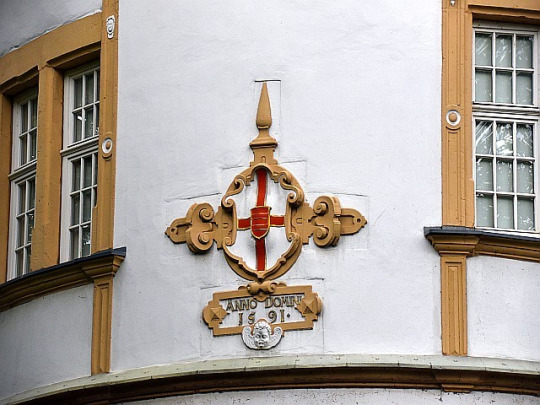
The Prince-Bishopric of Paderborn was ruled for 432 years from Neuhaus, and over the centuries the residence has grown building by building. In 1590, Bishop Dietrich von Fürstenberg let the four-wing complex in the Weser Renaissance style expanded.

You had to show a clear line against the Protestants. Therefore, the size of the castle was almost doubled and supplemented with four fortified-looking round towers. The facility survived the Thirty Years' War without major damage.
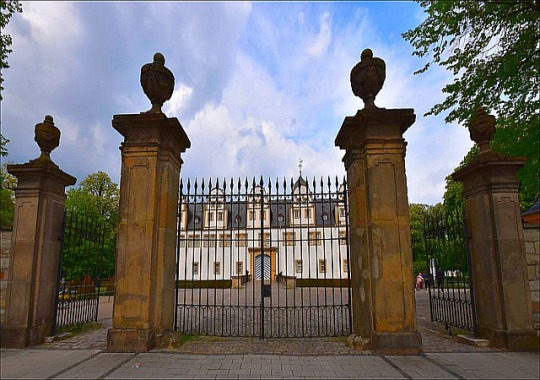
The builders were guided by the Italians' antique or Vitruvian understanding of art. The architecture Vredemann de Vries had a great influence on the design of columns, pedestals, gables and portals.

In the 18th century, the rooms and the park were redesigned by the architect Franz Christoph Nagel. In collaboration with renowned Westphalian artists, the castle was adapted to the taste of the time and converted into a maison de plaisance, a palace, where the prince-bishop could retire. In 1736 the Bishop Clemens August of Wittelsbach had the baroque garden completed.
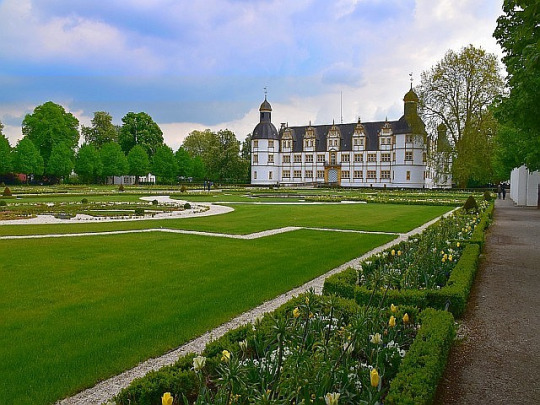
Neuhaus Castle is now a four-wing complex with round corner towers and a surrounding moat. The main entrance is on the south side. The south wing is formed by the House of Braunschweig, which was built in 1526. The Kerssenbrock house, which was built around 1560, adjoins the building on the east side.
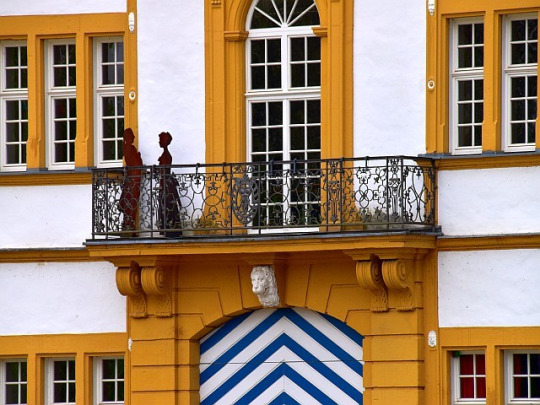
Opposite him stands on the west side near the south-west corner of the Cologne house and right next to it the house from around 1370. The latter is the oldest surviving building of Neuhaus Castle.

The entire garden side in the north was built together with the round corner towers around 1590. It is called Haus Fürstenberg. The construction created access to the garden, which is still dominated by a former drawbridge.

Grenadiers from the Paderborn Infantry Regiment were stationed in order to prevent the disrespectful Paderborners from entering the castle grounds without being asked. The Prussians did not take the episcopal military very seriously.

At the beginning of the 19th century, barracks were established in the castle after the secularization of the bishopric. In 1802, they annexed the prince-bishopric to compensate for the loss of territory to the French on the left bank of the Rhine. This put an end to the bishop as sovereign and the castle as residence.
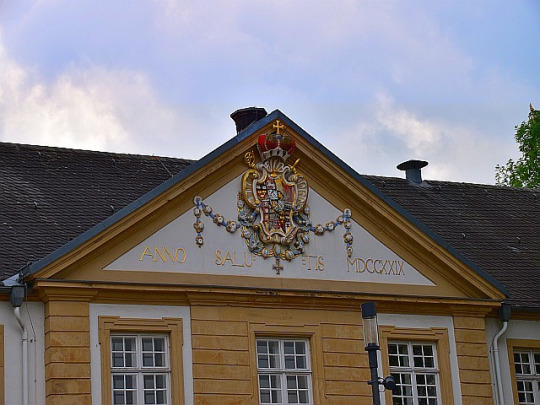
Napoleon briefly interrupted Prussian rule again, but from 1813 Berlin was again in charge. The Prussia used the castle as barracks, mainly for equestrian regiments. The tradition continued seamlessly after the First World War.

The British Army of the Rhine moved in after the Second World War for the next decades. Later on the Neuhaus village, which was still independent at the time, took over the entire complex from the British army.

It was only on July 19, 1964 that the British High Command returned the system at the symbolic price of one German mark to the community, which has since been renamed "Schloss Neuhaus". She set up a junior high school here three years later (1967). It started with 32 pupils, today about 750 (!) Children and young people are learning here.
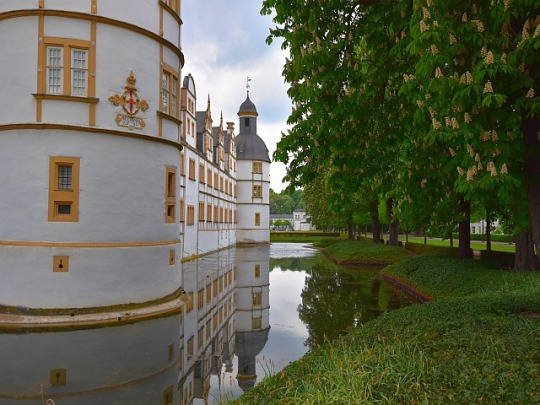
Other municipalities would have done everything possible to accommodate in such a showpiece a private high school for the offsprings of the rich and powerful as at Castle Salem or at least a noble private clinic for beauty-conscious celebrities.
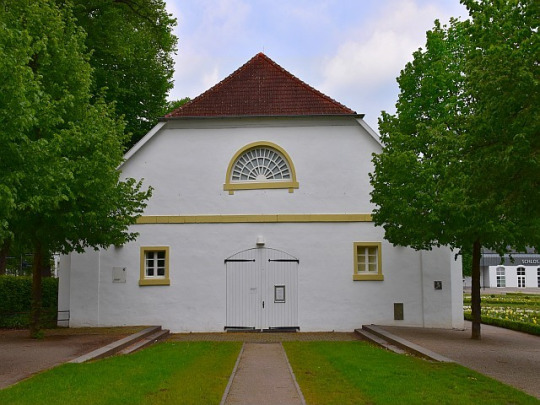
Unfortunately, the buildings can only be visited during events. The city of Paderborn only uses the princely dining room still for receptions, the rest is school. The historical museum on the city and castle history is not housed in the castle, but in the neighboring stables.
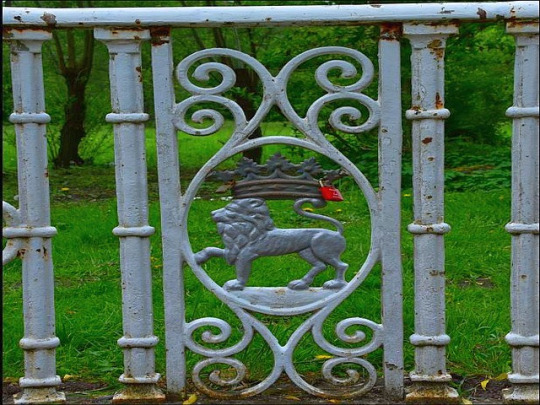
Fortunately, the castle grounds are open to the public. The entrances are mostly provided with richly decorated portals. The stair towers partly come from different times and vary greatly in appearance.
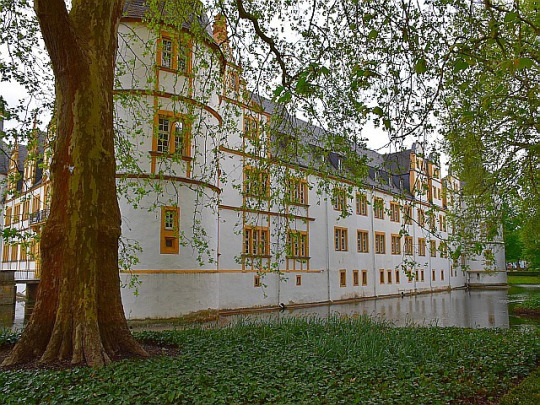
Numerous details can be seen on the tour of the grounds. On the northwest side, not far from the tower, there is a small stone figure on the roof gable, which reminds of the fate of a roofer.
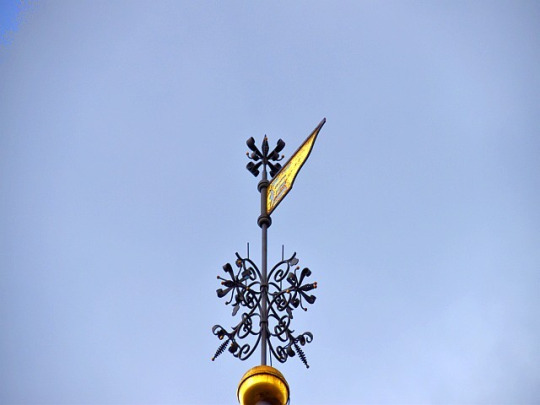
The year of completion and the coat of arms of the Lords of Fürstenberg can be seen on the southeast tower. The massive and impressive towers are now covered with hoods with flags. The roof bays vary from wing to wing and can be partially assigned to the eras.

The splendid side of the castle is on the back. Behind the castle, in the north, there is a view of the extensive, former baroque garden. He has many beautiful views of the castle. Together with the circular route around the facility, it invites you to stroll.

After the incorporation in 1975, the community carefully continued the maintenance of the castle and park together with the city of Paderborn. For Paderborn, this had the advantage that the city was able to host the NRW Garden Show in 1994 in the Neuhaus Castle park.

Neuhaus Castle becomes the center of the horticultural show in North Rhine-Westphalia. The castle park and the floodplain park are being built or are being restored. With the Garden show 1995 now annual events begin in the context of the castle summer.

Unfortunately, we also have to find out that only the most necessary maintenance is carried out on the area. Millions were invested at that time back then. Many things are slowly decaying or are no longer in operation. That's really a pity!

Parking and sightseeing of the castle park and the former garden show grounds are free of charge!
2 notes
·
View notes
Text
Uesugi Kenshin
Who: 上杉 謙信 (Uesugi Kenshin)
What: Samurai and daimyō
Where: Japanese (active in Japan)
When: February 18, 1530 – April 19, 1578

(Image Description: a photo of a statue of Uesugi at the Uesugi Jinja Shrine in Yonezawa, Japan; a shrine dedicated to Uesugi and a major tourist attraction. It shows a clean-shaved, square-jawed man with a flat nose and a serious brow. He is wearing traditional Japanese armor and a tall conical hat. He sits with his legs apart and holds a katana, there is another katana at his waist. End ID.)
Uesugi was one of the most gifted and powerful military figures in 16th century Japan, so talented and unstoppable his followers used to call him the God of War. There was even rumor he was the avatar for his beloved Bishamonten (毘沙門天), the Buddhist god of war and punisher of evildoers.
He is well known in Japan as the epitome of an honorable samurai, an intelligent and noble warrior, a brilliant strategist, a skillful and thoughtful ruler of the Echigo Province, and his dedication to restoring order to the Kantō region, and the heated rival of Takeda Shingen and Oda Nobunaga. Among Uesugi's other nicknames was Dragon of Echigo, which is equally badass.
He won military fame extremely young, going to war at age 14, gaining status as warlord by 18, he overthrew his brother (reluctantly but did what was right for his people) by 19, and reunified the Province his brother allowed to be fractured and fall into chaos by age 22. He matched his prowess on the battlefield with his ability to govern off of it, improving life for the people of Echigo. He was given the additional role of Kantō Kanrei by his adopted Uesugi clan (he was born to the Nagao family) (a kanrei (管領) being the Shōgun's deputy and the Kantō Kanrei being one of only two such positions).
He died enroute to one final showdown against Oda Nobunaga, either of illness, alcoholism, or by assassination. He is still a huge pop culture icon in Japan featuring in many, many different pieces of media and memorialized in monuments. Since 1926 in Jōetsu there has been a Kenshin Festival (Kenshin Kousai).
Probable Orientation: Aroace (also very possibly a trans man. He was described as being petite in appearance and his chronic stomach illnesses may have been due to period pains as there is some documentation they reoccurred monthly. A contemporaneous doctor said Uesugi died of uterine cancer. His remains were also spirited away and hidden. However there would be no reason for his family to conceal a daughter [they already had two boys] and he was raised as a son. But there are strong arguments for it.)
Samurai could be quite randy and the positions within the shōgunate were hereditary, so male heirs were important. Sex was encouraged, but Uesugi was so chaste people noticed it. His heirs were all adopted. He had no wife nor harem and while gay relationships were neither unheard of nor discouraged he didn't engage in those either. He was utterly disinterested and, as far as I can find, he died without any sexual encounters or romantic relationships. I have seen some note saying that he was trusted by the shōgun around his harem, which he did not extend to any other man, this could be proof that Uesugi was afab or it could be that the shōgun knew his underling well enough that he wasn't worried about having the asexual Uesugi Kenshin around his concubines. Or both. I vote both.

(image description: a brightly colored urushi-e (woodblock print) from Edo period artist Torii Kiyomasu I, it shows a famous showdown between Takeda Shingen and Uesugi Kenshin in the fourth Battle of Kawanakajima. On the left is Takeda who looks furious and awaits the charging Uesugi with only a fan. Uesugi is on a black horse and charges him carrying a sword. Uesugi is clean-shaven and has those same serious eyebrows as he did in the statue. The print is very stylized and disproportionate and emotional.)
#lgbtq#queer#asexual#ace#history#aromantic#aro#trans#japan#asia#soldiers#uesugi kenshin#16th century#politicians
61 notes
·
View notes
Note
Aww hell yeah. Asking historical questions is my jam. I've heard somewhere before that pirates wore earrings because they thought pierced ears would cure seasickness. Is that true?
i’m honestly about to ruin somebody’s childhood daydreams up in here and i’m honestly okay with that. who? dunno, but i’m sure it’ll happen.
okay so. first things first as far as pirates go: you would not - i repeat, would not - be able to tell your average pirate from your average merchant sailor. by which i mean to say after a murky, fuzzy chronological line, do sailor have tattoos? then pirates have tattoos. do sailors sometimes wear earrings? pirates sometimes wear earrings. because first and foremost, pirates were typically only pirates part time. like it wasn’t a career option, it was something you did if a ship’s master was a dickbag or you needed to make a little extra money or you got kicked off a legitimate ship or left a legitimate ship because the master decided to change plans on a whim (because they could do that) and refused to pay you more. or the master withheld pay and rations. or-
what i’m saying is, piracy was kind of a last ditch option for a lot of honest sailors.
so, let’s touch on superstitions. sailors, as a whole, were and are a superstitious lot. even now bringing bananas onto a ship is a no no in the sailing world. you don’t whistle on deck or you might whistle up a storm. but in this case, earrings weren’t so much a part of that as they were for a very practical reason.
see, life at sea is hard. it’s dangerous. it’s really easy to die in a myriad of horrible, gruesome, awful ways. cannonfire, falling overboard, getting crushed between ships, getting crushed by an unsecured gun (cannon) or unsecured cargo. getting caught in the rigging. getting smooshed during careening. it’s not happy funtime, it’s hard, backbreaking labor. combine that with, on a ship, most water was mixed with rum to keep it from going stagnant, you’ve got a crew that’s half tipsy literally all the time. pirates with earrings in their ears didn’t wear them because they were backward (you had some educated men and women among the rank and file of piracy - blackbeard and stede bonnet are good examples) and the world was on the cusp of the germ theory (they were still half miasma/half humours at the time, but they understood outside forces were responsible for illness and that there were ways it could be prevented - the first inoculations would occur in the last quarter of the 18th c).
no, the reason people who sailed as a profession as a whole wore earrings was because it was fast and easy cash in an uncertain world. if a sailor was stranded in port (either for bad behavior or because of illness) or died close to/in port, that was money. if the person was alive, that gold could be traded for goods and services. if they were dead...well. it would pay for a funeral - a box in the ground in some strange, foreign port, sure, but a grave all the same.
like that’s it. that’s the long and short of that. pirates are 1000% less exotic and tarted up than we’ve made them in the last century or so (though the argument could be made it goes as far back as the late 1600s/early 1700s with the forging of legends and misstruths - i know, i wrote a humongous paper dealing with that very thing about the trials of the crew of henry every/avery and how they spurred both changes in public opinions concerning piracy and the laws in britain themsselves which hadn’t been touched since the 1530s or thereabouts).
a good book to check out with regards to the social history of pirates is marcus rediker’s between the devil and the deep blue sea: merchant seaman, pirates, and the anglo-american maritime world, 1700-1750. rediker used to be THE name in caribbean and atlantic piracy but he’s moved on to another facet of maritime history iirc. can’t recommend this book highly enough - for a monograph it’s surprisingly readable (rediker is actually a gr8 academic writer and his footnotes are the best parts), where he covers a lot of this stuff in dedicated chapters as well as hammering down that sailors and pirates are exactly the same thing, and that most sailors had, at some point or another, done a little bit of piracy.
i ama a historian : accepting : anon
#⚛ (protocol: anonymous) / incognito honey you're so crude#⚛ (protocol: answered) / i stole the keys from the sky#⚛ (protocol: ooc asks) / hey big spender spend a little time with me#// i'm sorry y'all#// i ain't breaking out the Historian Voice for this#// y'all actually don't want that#// but
9 notes
·
View notes